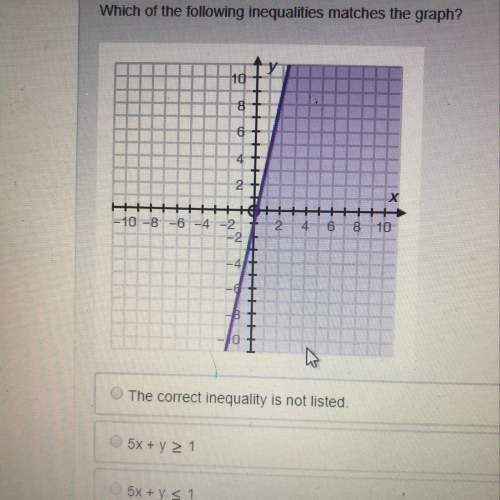
Mathematics, 13.04.2022 03:40 galfaro19
A function f(x) that always increases in all rational numbers is
f(x) = 1/4(x4 + ax3 + bx2 + 4x) (if x>=0)
f(x) = x (if x<0)
To rational number t which is 0= 0+) (f'(x)-1)/x >0
for rational number t1 and t2 (k=
a rational number k's minimal value that meets
integral 0 to t1 g(x) dx + 1/2(t2)2
= integral 0 to t2 g(x)dx + 1/2(t1)2
is 3
3. function f(g(x)) is only undifferentable in one x
what is a2 + b2 (a, b is static value-not variable)
can anyone solve this?

Answers: 1


Other questions on the subject: Mathematics



Mathematics, 21.06.2019 16:30, DineroLaForeign
What is the fewest number of full weeks briyana would have to work to have enough money? 8 weeks9 weeks 10 weeks11 weeks
Answers: 1

Mathematics, 21.06.2019 16:50, lunamoon1
The rate of decay of a radioactive substance depends upon the amount present initially. the mass y (mg) of the radioactive substance cobalt-60 present in a sample at time t (years) is represented by the exponential equation y=50e −0.1315 t . answer the following questions in complete sentences. 1. how does the exponential equation above compare to the equation for simple interest that is compounded continuously? explain the similarities. 2. what is the initial amount of cobalt-60 in the sample? 2. how much cobalt-60 is left after 8.4 years? show your work. 3. what would be the y-intercept of the graph? what does it represent? 4. after how many years will the amount of cobalt-60 left be 6.25 mg? explain what happens to the cobalt-60 after 50 years? 5. discuss some “real-world” examples and uses of cobalt-60
Answers: 1
You know the right answer?
A function f(x) that always increases in all rational numbers is
f(x) = 1/4(x4 + ax3 + bx2 + 4x) (...
Questions in other subjects:






Biology, 04.03.2020 01:37

Mathematics, 04.03.2020 01:37

Mathematics, 04.03.2020 01:37

History, 04.03.2020 01:37





